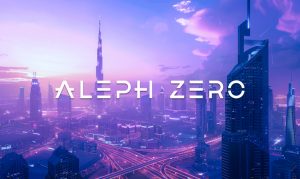Aug. 8 Tornado Cash sanction scrambles MakerDAO as USDC collateralization comes into question


Tornado Cash ban in the US sends a ripple through the crypto scene, with MakerDAO facing potential shutdown.
On Monday, August 8, the U.S. Department of the Treasury’s Office of Foreign Assets Control (OFAC) sanctioned virtual currency mixer Tornado Cash. The mixer was favored by Ethereum creator Vitalik Buterin for making donations but also by thieves like those behind Harmony Bridge. The software doesn’t collect any information about the sender and renders receivers anonymous.
An OFAC release said Tornado Cash “has been used to launder more than $7 billion worth of virtual currency since its creation in 2019.” This includes $96 million from Harmony Bridge, at least $7.8 million from the Nomad Heist that went down on August 2. Most famously, however, “the largest known virtual currency heist to date,” DPRK-based Lazarus Group’s theft of $455 million, also used Tornado Cash.
“Tornado Cash has repeatedly failed to impose effective controls designed to stop it from laundering funds for malicious cyber actors,” Under Secretary of the Treasury for Terrorism and Financial Intelligence Brian E. Nelson said.
OFAC’s move sent shockwaves through the crypto community, threatening its crown jewel–Circle’s USDC, the second-most valuable stablecoin out there.
As if crypto winter weren’t enough, here’s this summer’s second domino tumble.
“On Tuesday, Centre, the consortium behind USDC, blacklisted 38 wallet addresses and froze the USDC tokens they held,” said the Defiant.

Since its founding in 2017, MakerDAO has become DeFi’s largest entity, with $8.7 billion locked in its protocol. Now, MakerDAO faces a potential emergency shutdown due to the Tornado Cash ban. When MakerDAO first started, users could only mint native stablecoin DAI against overcollateralized ETH deposits. That focus has kept their treasury warm through the market, but as their allowed asset roster expanded, centralized USDC quickly grew in proportion. This has also called Maker’s decentralization into question.
At the time of writing, Daistats says Maker’s PSM-USDC-A accounts for 33.1% of all DAI collateralization. That’s up a little bit from Friday, in fact.
Critics piled on crackdowns by GitHub and Centre, calling the latter a violation of the censorship resistance that defines decentralization. Decrypt noted that Centre didn’t need to blacklist those wallets and freeze their currency, but Centre said the decision didn’t come out of spite. For the US-based company, it was a matter of compliance and ethics.
“We know that complying with the law and helping to stop money laundering is both right and our obligation as a regulated financial institution,” CEO Jeremy Allaire wrote in an August 9 blog post. “We also know that doing what is right compromised our belief in the value of open software on the Internet and our belief that the presumption and preservation of privacy should be enshrined as a design principle in the issuance and circulation of dollar digital currencies.”
MakerDAO founder Rune Christensen remarked on Discord that “If we get nuked by the U.S. government, we simply die.”
“In the short run, we simply do not have the ability to resist a crackdown, and we can’t pull it out of a hat,” he wrote. “The best option is to count on not getting sanctioned now and then work on the fundamentals we need to have in place to be able to actually resist a real physical attack. We should just accept that if they want to shut us down, the outcome is [an] emergency shutdown.” A team called Phoenix might have to figure out how they’ll handle it.
MakerDAO protocol engineer Hexonaut also wrote on Discord that “people [are] acting as if we haven’t been attempting to unwind the USDC exposure from the beginning. Diversified RWAs [real world assets] have always been the goal… If you don’t like USDC, then you should be voting yes to onboard RWAs.”
MakerDAO smart contract engineer Brian McMichael, however, wrote, “RWAs have the exact same problem. USDC is an RWA, and it’s why we have the problem.”
“I think we should seriously consider preparing to depeg from USD,” Christensen wrote on August 11. “It is almost inevitable it will happen, and it is only realistic to do with huge amounts of preparation.”
On Twitter the same day, he introduced “uprooting,” also known as the “yolo USDC into ETH” approach, “yolo” presumably meaning “you only live once” from “The Motto” by “Drake.”
“it is obviously suicide to yolo it all,” Christensen wrote (so true bestie), but “the market may finally start to reward decentralization to the point where these risks are acceptable because USDC is no longer the no-brainer it used to be.”
But what is the point of living, then? Imagine using this occasion to parse the ethics their decentralization will protect. “Yolo,” however, doesn’t usually preface consideration. The tone seems dire.
“MakerDAO is considering a $3.5 billion ETH market buy, converting all USDC from the peg stability module into ETH,” Banteg tweeted on August 11. “Errr, this seems like a risky and terrible idea,” Buterin replied.
If ETH drops a lot, value of collateral would go way down, but CDPs would not get liquidated, so the whole system would risk becoming a fractional reserve.
Later that day, Wu Blockchain tweeted that “Vitalik said non-ETH collateral should be allowed to exceed 20% of the total.”
OFAC’s original release closes with this reminder: “The power and integrity of OFAC sanctions derive not only from OFAC’s ability to designate and add persons to the SDN List, but also from its willingness to remove persons from the SDN List consistent with the law. The ultimate goal of sanctions is not to punish, but to bring about a positive change in behavior.”
Only the last sentence really evokes punk music. Can decentralization, by nature, work within centralized institutions? Can it survive without those structures? How could the effort be made worth it? Pretty soon, we’ll have some actionable evidence as the Tornado Cash sanctions force MakerDAO to put an impossible puzzle together in real time.
Read related posts:
Disclaimer
In line with the Trust Project guidelines, please note that the information provided on this page is not intended to be and should not be interpreted as legal, tax, investment, financial, or any other form of advice. It is important to only invest what you can afford to lose and to seek independent financial advice if you have any doubts. For further information, we suggest referring to the terms and conditions as well as the help and support pages provided by the issuer or advertiser. MetaversePost is committed to accurate, unbiased reporting, but market conditions are subject to change without notice.
About The Author
Vittoria Benzine is a Brooklyn-based art writer and personal essayist covering contemporary art with a focus on human contexts, counterculture, and chaos magic. She contributes to Maxim, Hyperallergic, Brooklyn Magazine, and more.
More articles

Vittoria Benzine is a Brooklyn-based art writer and personal essayist covering contemporary art with a focus on human contexts, counterculture, and chaos magic. She contributes to Maxim, Hyperallergic, Brooklyn Magazine, and more.














